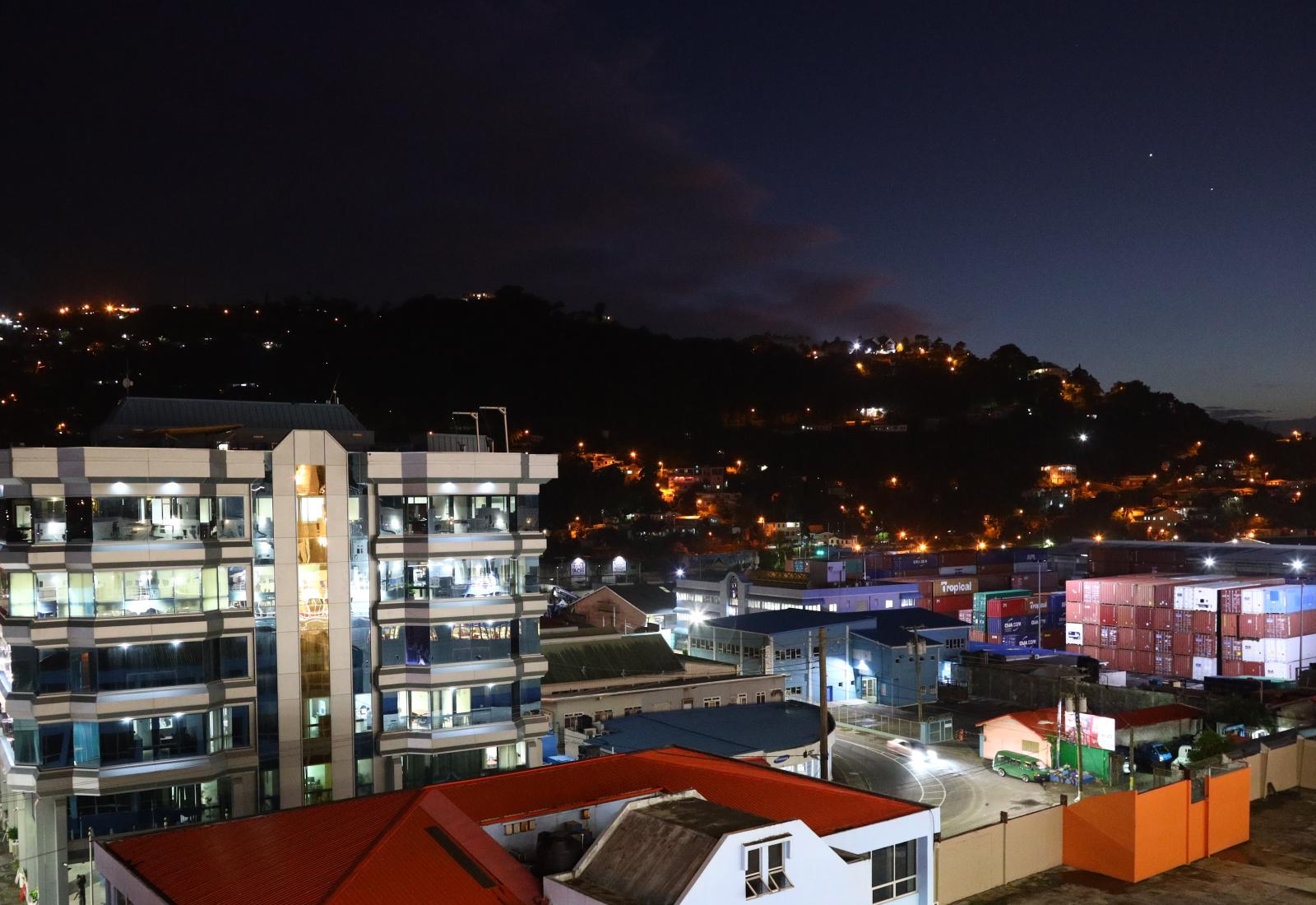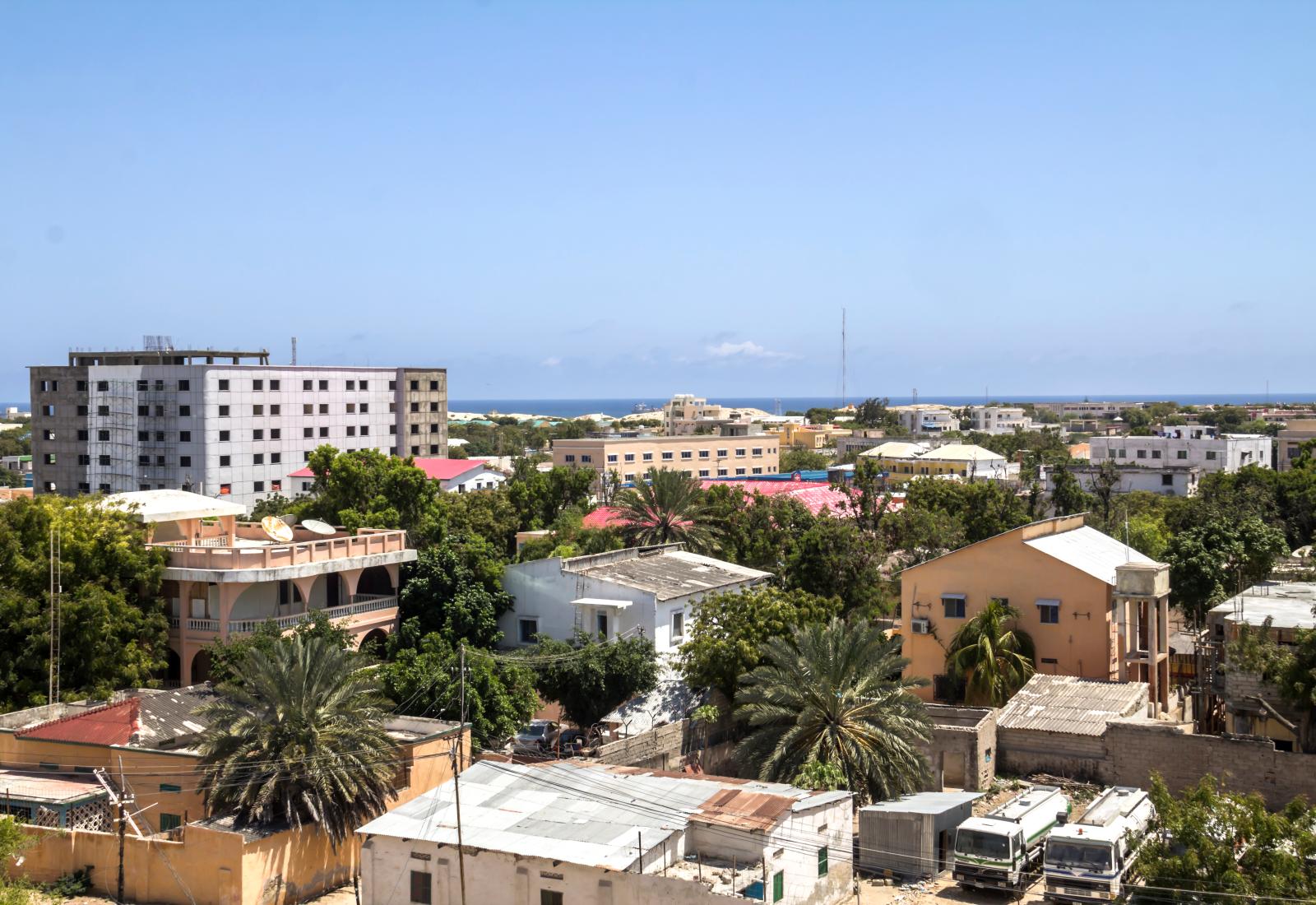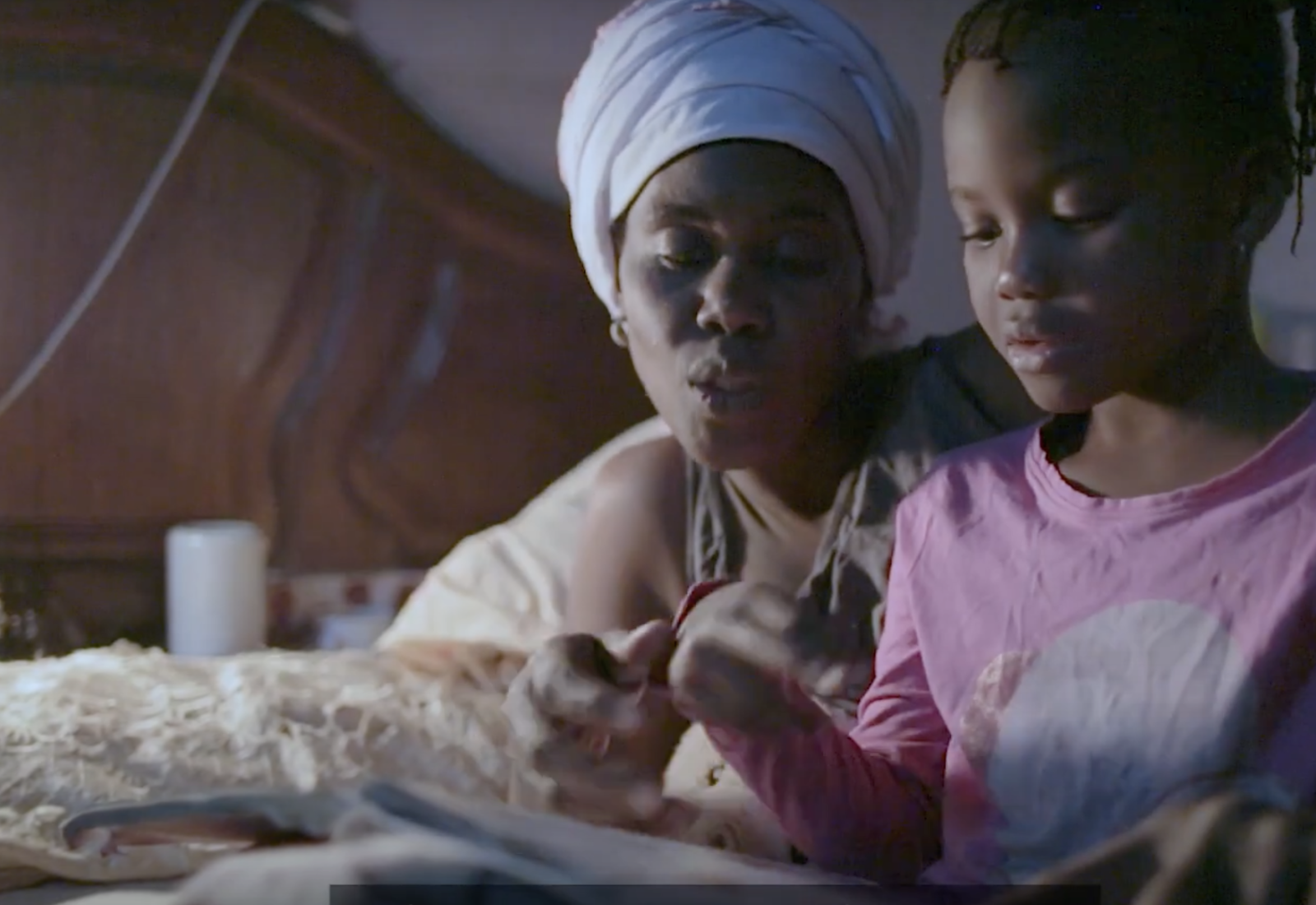
Climate Change
Overview
Private sector involvement in climate action is key to closing the climate finance gap, which by some estimates ranges in trillions of dollars. MIGA's ability to mobilize private capital is essential for unlocking private sector potential for addressing climate finance needs in developing countries.
No one is more disproportionately affected by the risks and impacts of climate change than those in the least developed countries and emerging economies. Development inequality exacerbates the impacts of climate change on the poorest, and in the next two decades, 143 million people could be internally displaced due to changing weather patterns, droughts, desertification, food insecurity, and other susceptibilities attributed to the adverse effects of climate change.
MIGA has made climate change a priority area of its strategy along with low-income (IDA) countries and fragile and conflict-affected situations (FCS). During FY23 MIGA issued guarantees supporting climate change mitigation or adaptation in 31 projects and across 23 countries. The climate finance component of the new guarantees issued in FY23 of $1.5 billion represented 28 percent of the total guaranteed investment of the projects supported. The projects signed in FY23 will help avoid an estimated 826,464 metric tons of CO2 emissions annually.

Related
- World Bank Group and Climate Change
- IFC's Work in Climate Business
- 2020 Joint Report on Multilateral Development Banks' Climate Finance
(Last Updated: Aug 7, 2023)
Our Strategy
MIGA is working, like the World Bank and IFC, to achieve an average of at least 35% of direct climate finance for the period of the new World Bank Group Climate Change Action Plan (WBG CCAP 2021-2025). We believe this is an ambitious target under extremely challenging investment circumstances brought on by the COVID-19 crisis and the resulting steep decline in foreign direct investment. Nonetheless, MIGA is more focused than ever on delivering climate finance projects, including in the most challenging low-income (IDA) countries and fragile and conflict-affected situations (FCS).
MIGA's products have proven to provide protection to cross-border private investors seeking long-term investments in climate mitigation and climate adaptation activities across diverse markets and regions. As one of the only institutions that provides long-maturity guarantees, MIGA will be instrumental in fostering the lock-in of transformational climate action.
In fulfillment of the ambitions of the new CCAP, MIGA is committed to accelerating its efforts, including by continuing to seek opportunities to innovate, leverage its partnerships and participate actively in joint work programs of the World Bank and IFC. As an example, MIGA is fully engaged in developing the first 25 WBG Country Climate and Development Reports (CCDRs). We are also ensuring that the CCDRs reflect the role of de-risking and credit enhancement solutions in mobilizing private investment for climate action and, where relevant, that the CCDRs aim to capture the potential evolution and implications of political and sovereign credit risks due to unabated climate change impacts in the whole-of-economy framing.
As part of our commitment, MIGA is also working hard to raise our share of climate adaptation finance. We are doing so through a number of channels: i) we are seeking to apply larger amounts of blended finance; ii) we are working along with the World Bank and IFC to leverage the upstream work with governments that aims to catalyze the private sector to invest in climate adaptation; iii) we are mainstreaming climate risk screening for all of MIGA's operations; and (iv) we are seeking opportunities to work with clients to include resilience measures in project design.
This is especially true for infrastructure projects where assets have a long useful life. For example, road and power projects we brought to the Board in FY21 included climate adaptation interventions related to minimizing the impacts of extreme weather. These measures were adopted by the client as a result of MIGA's early engagement on climate risk topics during the project design process.
As articulated in the CCAP and similar to IFC, MIGA will align 85% of Board approved real sector operations starting July 1, 2023 and, two fiscal years later, 100% of these operations. It is important to recognize that to be ready to meet these targets, MIGA, well ahead of the July 1, 2023 target date, will need to begin aligning virtually 100% of our projects at the concept stage.
For its support of financial institutions, MIGA is working with IFC on the MDB (multilateral development bank) methodology.
This phased approach to the Paris Agreement will help ensure that, working closely with our clients, we are well prepared to deliver projects that meet both the mitigation and adaptation goals of the Paris Agreement. The phase-in period is especially important given our growing pipeline of projects, including in IDA and FCS countries, which typically need longer lead times to develop.
Turning to mobilization of private sector finance for climate, MIGA will deliver global climate adaptation and mitigation benefits at scale through enhanced de-risking applications to support new climate opportunities. We will closely collaborate with the World Bank and IFC to leverage the expanded upstream collaboration across the Bank Group to generate greater private sector engagement in climate activities downstream.
MIGA will also strengthen its work with the World Bank and IFC to boost innovation to meet both the opportunities and challenges of climate change. For example, market mechanisms such as carbon markets and emissions trading schemes have the potential to reduce the total cost of implementing countries' Nationally Determined Contributions (NDCs)—with about half of the current NDCs signaling interest in using forms of international cooperation through Article 6 of the Paris Agreement. MIGA is working with the World Bank on assessing how MIGA products can be deployed to de-risk carbon markets and emissions trading schemes that will be formed under Article 6.
Finally, MIGA will strengthen its collaboration with public and private partners to tackle climate challenges through complementary projects, products and win-win solutions.
Key Transitions
- The new WBG CCAP focuses on increasing our collective efforts on key systems transitions to tackle greenhouse gas emissions.
- In energy systems, MIGA will continue its successful work to support cross-border foreign direct investment into renewables. We will continue to be innovative, using our guarantees to underwrite micro and mini-grids, and storage solutions, that can accelerate delivering sustainable energy and electrification to underserved communities, specifically in IDA and FCS countries.
- In agriculture, food and manufacturing, MIGA will work with clients to support the adoption of low-carbon and climate-resilient actions across all segments of the value chain.
- At MIGA, biodiversity considerations are mainstreamed into projects through our Environmental and Social Performance Standards. While historically we have not included a climate change lens in this work, moving forward MIGA will work to build in the impacts of changing climate on biodiversity patterns.
- In MIGA's sustainable cities projects, building on our experience, we will reach further to find innovative applications of our products to support natural green infrastructure that is environmentally sustainable and resilient. MIGA will focus on working with its clients to make certain that infrastructure projects are adequately climate-proofed and do not result in increased vulnerability to climate change.
- MIGA will also bolster its impactful strategy to deliver climate finance through our work with the financial sector. MIGA's engagement on greening financial institutions will include providing support to financial institutions that will phase out coal-related projects as early as possible but no later than 2030. MIGA will also support these clients through various greening channels including (i) scaling up climate finance and green loans; (ii) greening their own corporate footprint; and (iii) supporting climate risk screening as an integrated risk tool in their credit processes.
MIGA and Paris Alignment
As part of the World Bank's Climate Change Action Plan 2021-2025, the Bank made a commitment that all its financing flows and guarantees will be consistent with the goals of the Paris Agreement and a country’s pathway towards low greenhouse gas emissions and climate resilient development. Paris Alignment of the Bank’s new financing flows is the most comprehensive institutional undertaking ever done by the Bank to reconcile both goals: development and climate.
In line with the Paris Agreement, the Bank’s approach recognizes that countries have common but differentiated responsibilities and respective circumstances in implementing the Paris Agreement. As such, our Paris Alignment assessments will be operation, context, and time specific, and for a given set of development objectives. All Bank financed operations will support the deployment of lower-carbon options as applicable, whenever technically and economically feasible; prevent carbon lock-in; and ensure climate-related risks have been assessed and reduced to an acceptable level through the design of a project.
MIGA and Paris Alignment
In line with the Joint Multilateral Development Banks (MDBs) Methodological Principles for assessing Paris Alignment, MIGA is committed to aligning 85% of its new projects with the objectives of the Paris Agreement starting July 1, 2023, and 100% of these projects starting July 1, 2025.
The Joint Methodological Principles relevant to MIGA are the following:
In addition, universally aligned and universally non-aligned lists of activities are available here.
MIGA’s Paris Alignment assessment are conducted in the context of Bank’s twin goals of ending extreme poverty and promoting shared prosperity. The assessments will take into account each country’s pathway towards low greenhouse gas emissions and climate resilient development, and determine whether an activity advances, hinders, or is “neutral” when it comes to achieving progress towards the goals of the Paris Agreement.
A MIGA guarantee is considered aligned when:
- On climate mitigation, it actively contributes to decarbonization pathways (e.g., renewable energy) or supports activities that do no harm (e.g., water supply systems that are not emissions intensive); and
- On climate adaptation and resilience, it manages physical climate change risks effectively, with measures such as drought-resistant crops or setting up early warning systems.
Notable Projects
During FY23 MIGA issued guarantees supporting climate change mitigation or adaptation in 31 projects and across 23 countries. The climate finance component of the new guarantees issued in FY23 of $1.5 billion represented 28 percent of the total guaranteed investment of the projects supported.
EXAMPLES OF MIGA-SUPPORTED PROJECTS RELATED TO CLIMATE CHANGE
Saint Lucia
In FY23, MIGA issued guarantees to KLED Capital and CIFI LATAM to support installation, operation, and servicing of a modernized streetlights network in Saint Lucia.
The project consists of replacing all 22,000 of the island’s sodium streetlights with LEDs and installing 2,460 new LED streetlights. This will lead to a greenhouse gas (GHG) emission reduction of 5,000 tons of carbon dioxide equivalent (CO2e) per year while increasing light levels by over 30 percent across the road network.
Somalia
In FY23, MIGA issued a guarantee of $5.67 million to cover Kube Energy’s equity and debt investments in Kube Energy Somalia LLC for a period of up to 15 years against the risks of expropriation and war and civil disturbance.
MIGA’s first project in Somalia shows that renewable energy investment can be achieved in challenging environments.
Senegal
In FY23, MIGA’s support for Taiba N’Diaye wind farm in Senegal helps to bolster the production of clean energy, lower generation costs, and diversify the country’s energy mix.


















